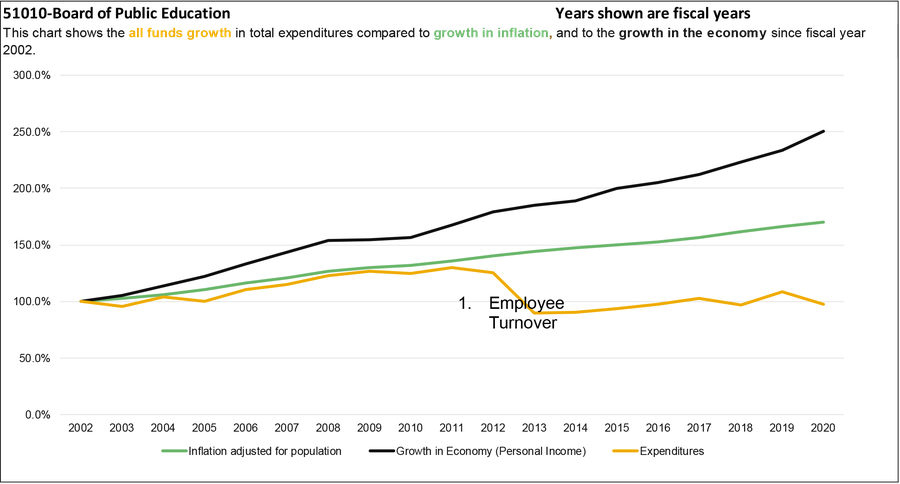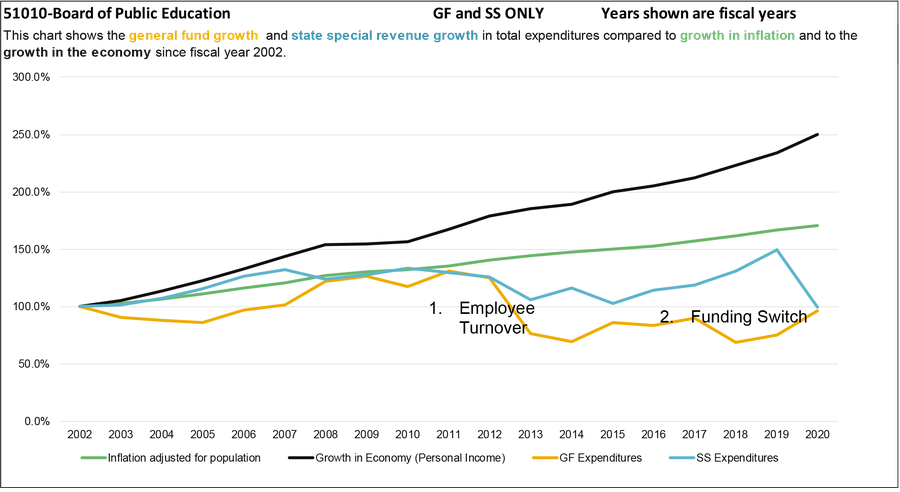Montana State Legislature
Board of Public Education
The Board of Public Education (BPE) is charged under the Montana Constitution with general supervision of the public school system and other public institutions assigned by law, including the Montana School for the Deaf and Blind. Located in Helena, Montana, the board cooperates with the Governor and other elected officials, the Board of Regents, the Superintendent of Public Instruction, local school boards, the education community, and all Montana citizens, including its students. The Board of Public Education and the Board of Regents meet twice a year as the Board of Education.
Duties assigned to the BPE include but are not limited to:
- Adopt standards of accreditation for Montana schools and establish the accreditation status of each school
- Effect a system of teacher certification, including the accreditation of the teacher and administrator training programs
- Consider the suspension or revocation of teacher certificates and hear appeals from the denial of teacher certificates
- Administer and order the distribution of state equalization aid
- Adopt policies for the special education of handicapped and gifted and talented students
- Act as the governing agency for the Montana School for the Deaf and Blind
The Board consists of seven members appointed by the Governor, and confirmed by the Senate, to staggered seven-year terms. The Governor, the Superintendent of Public Instruction, and the Commissioner of Higher Education are ex-officio, non-voting members of the Board. A student representative is elected by the Montana Association of Student Councils executive committee to serve a one-year term.
The BPE provides its service through a single state agency with offices in Helena. The board has a staff of three that provide research, clerical functions, and management of business affairs for all programs under the purview of the Board of Public Education. Programs include:
- Certification Standards and Practices Advisory Council (CSPAC). This council is tasked to study and to make recommendations to the Board of Public Education on: certification issues concerning teachers, administrators and specialists; professional standards and ethical conduct; the status and efficacy of approved educator preparation programs in Montana; and policies related to the denial, suspension, and revocation of educator certification and the associated appeals process. The seven members of this council are appointed by the Board of Public Education to serve three-year terms.
- The Montana Advisory Council for Indian Education is attached to the Board of Public Education. This council advises the board and the Superintendent of Public Instruction on Indian education. The council is composed of representatives of the eleven tribal groups in Montana, and other groups working in the interest of Indian people.
Since the Board of Education is a single program agency, no organizational chart is included.

This report includes a series of charts that compare expenditure growth to the growth in the economy and growth in inflation adjusted for population. Montana statute, 17-8-106, MCA, recommends using growth in personal income for comparison purposes. Personal income is a measure for growth in the economy. Comparing growth allows financial planners to consider past and future demands in services or changes in revenues.
The following list discusses in more detail the inflection points on the charts:
- In FY 2013 and FY 2014, there was a large reduction in expenditures due to a significant amount of employee turnover. These vacant positions were filled with new employees at lower salaries than the previous employees received, leaving the BPE with unspent authority in FY 2012. The legislature adopted those decreases as a statewide present law adjustment in FY 2013, which created a change point from which the BPE’s expenditures continued to increase at a rate similar to its prior growth rate. This growth rate is approximately equal to the growth rate of population and inflation. In FY 2016, the legislature permanently reduced the agency’s FTE from 4.00 to 3.00.

2. The slight drop in general fund in FY 2018 is due to reductions made in anticipation of the projected revenue shortfall. Unlike previous biennium, where funding was evenly split between general fund and state special revenue, the legislature funded 40.7% of the budget in the 2019 biennium with general fund and the remaining 59.3% with state special revenue. In FY 2020 and FY 2021, the legislature approved a fund switch to again fund the BPE with approximately 47.4% general fund over the biennium. This change was made to reflect a fund switch to return to previous funding levels after spending down the state special revenue fund balance during the 2019 biennium.
General Fund
The BPE is funded through a combination of general fund and state special revenue funds. Generally, one-half of the budget is funded with general fund.
State Special Revenue
State special revenue for the BPE provided by teacher certification fees of $6.00 per year. By statute, these fees are collected by the Office of Public Instruction (OPI) and deposited into two accounts: two-thirds of the fees are deposited in the advisory council state special revenue account, which supports the activities of The Certification Standards and Practices Advisory Council (CSPAC), and one-third is deposited into the research fund and used to fund the statutory duties of the BPE and CSPAC. All revenue to the advisory council fund is expended each year before general fund is expended. As originally created, the research fund was to be a reserve for special projects. However, statute has been changed to allow for the appropriation of a portion of the fund for operations with the balance reserved for special projects.
Click the double-sided arrow in the lower right corner of the image below to enlarge the graphic. Then, click the box next to the agency you want to see. To minimize, click Esc.
Legislative Studies
Education Interim Committee work
Audit Reports
Financial Compliance Audit - Board of Public Education - May 2019
Legislation
HB 13 and fiscal note and amendments
HB 95 Revise ethics laws related to confidentiality
HB 135 Provide for interim committee review of agency rules prior to adoption
HB 159, Revise Governor’s power to spend certain unanticipated federal funds
SB 36 Code Commissioner bill
SB 57, Revising laws related to reports to the legislature
SB 110, Revise state employee and U-System health plan laws for temp state share holiday
Jan. 7 Budget
Nov. 15 Budget
Agency profile information is provided by the Legislative Fiscal Division.
